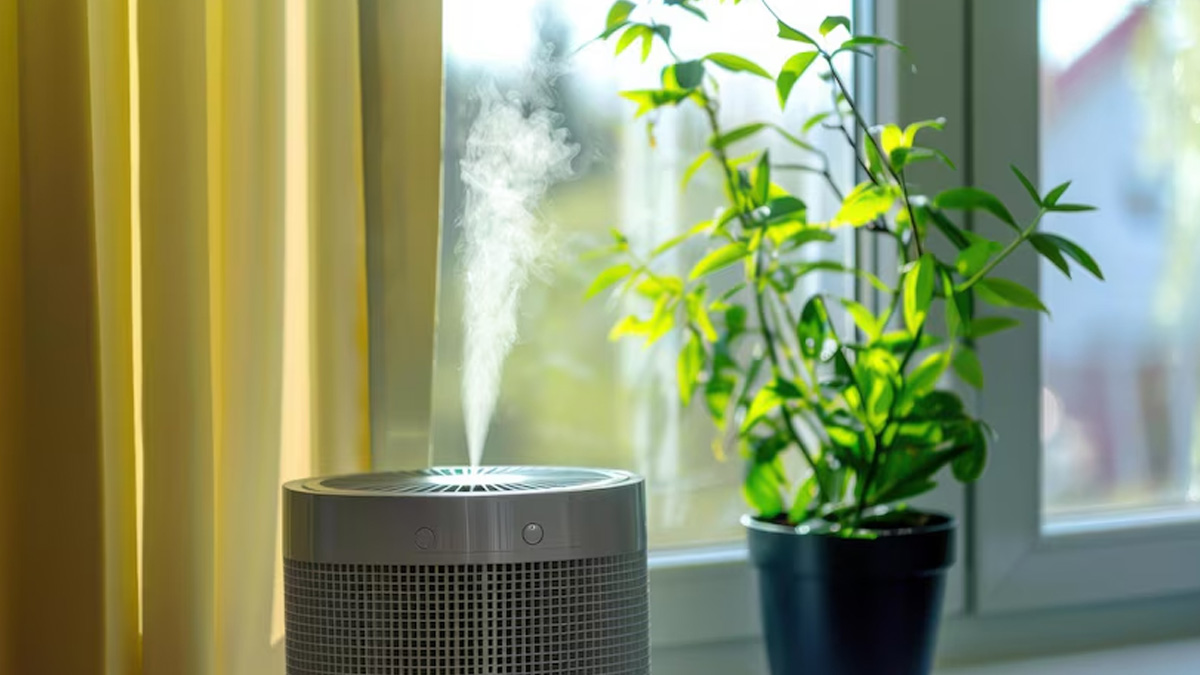
In recent years, poor air quality has become an escalating public health concern, as urban areas grapple with rising levels of particulate matter (PM), nitrogen dioxide (NO2), and other harmful pollutants. For pregnant women, exposure to these pollutants can have serious implications—not only impacting their health but also posing risks to foetal development. Studies link high pollution levels to an increased risk of respiratory issues, low birth weight, and even cognitive impairments in children.
Table of Content:-
To understand how pollution can affect moms to be and their babies, OnlyMyHealth interacted with Dr Pratibha Singhal, Director of the Department of Gynecology and Obstetrics at Cloudnine Group of Hospitals, Noida. According to her, “Pregnant women and their developing foetuses are particularly vulnerable to the harmful effects of air pollution. High levels of particulate matter (PM), nitrogen dioxide (NO2), sulphur dioxide (SO2), and other pollutants can adversely affect maternal health and foetal development.”
Understanding AQI and Its Implications
The Air Quality Index (AQI) provides a measure of air quality, categorising it from "Good" to "Hazardous." For pregnant women, an AQI above 100 indicates caution, as even moderate pollution levels can trigger health concerns. When AQI levels exceed 200, air quality is classified as “Very Unhealthy,” and an AQI over 300 is considered “Hazardous,” with serious health implications. Dr Singhal adds, “Air pollution and allergic bronchitis lead to repeated chest infections and often require antibiotic treatment. Such repeated exposure can result in poor maternal weight gain and growth retardation of the foetus, with severe pollution exposure even raising the risk of stillbirth.”
Health Risks Associated with Air Pollution During Pregnancy

Respiratory Issues: Air pollution can lead to respiratory problems in pregnant women, such as asthma and bronchitis, which can reduce oxygen flow to the foetus, impacting development.
Low Birth Weight: Exposure to pollutants is linked to low birth weight, a factor associated with developmental delays and higher chances of chronic health conditions in infants.
Preterm Birth: Increased pollution levels correlate with preterm labour, leading to premature births, which can result in complications like respiratory distress syndrome in newborns.
Neurological Impacts: Emerging studies suggest that high pollution exposure during pregnancy may harm foetal brain development, potentially causing cognitive issues and behavioural challenges later in life.
Cardiovascular Concerns: Pollution also poses risks to maternal cardiovascular health, raising the chances of hypertension, which can lead to complications in pregnancy.
Also read: Diwali 2024 Pregnancy Guide: Essential Tips for a Safer and Healthier Celebration
Protective Measures for Pregnant Women
Here are some tips shared by Dr Singhal for pregnant women to stay safe amid pollution.
1. Stay Informed About Air Quality
- Monitor AQI: Keep track of air quality through reliable apps or sources to plan daily activities.
- Understand Local Patterns: Recognize pollution trends in your area, such as times of high pollution, to reduce exposure.
2. Limit Outdoor Activities
- Stay Indoors: On high AQI days, limit outdoor activities, especially during peak hours. If necessary, go out in the early morning or late evening when air quality tends to improve.
- Avoid High-Traffic Areas: Busy roads are often pollution hotspots, so avoid these when possible.
3. Create a Clean Indoor Environment

- Use Air Purifiers: A HEPA filter air purifier can reduce indoor pollutants, especially in bedrooms and common spaces.
- Ventilate Wisely: Open windows only when air quality improves. During high pollution days, keep them closed to prevent outdoor pollutants from entering.
4. Practise Healthy Nutrition
- Balanced Diet: Include fruits, vegetables, whole grains, and lean proteins to support maternal health. Antioxidant-rich foods like berries, nuts, and leafy greens help counteract oxidative stress from pollution exposure.
- Hydration: Drink plenty of water to aid in detoxification, which can support overall health.
Also read: Pregnancy Nutrition: Expert Reveals Why Fruits Alone Aren’t Enough For Expecting Moms
5. Manage Stress Levels
Mindfulness and Relaxation: Techniques like deep breathing, yoga, or meditation can reduce stress and improve pregnancy health.
6. Consult Healthcare Providers
Regular Check-ups: Maintain regular prenatal appointments to monitor health. Discuss any concerns about air quality with your healthcare provider.
7. Community Engagement
Advocate for Clean Air: Support initiatives to reduce air pollution and promote clean air policies, contributing to a healthier environment for future generations.
Conclusion
High pollution levels pose significant risks to maternal and foetal health, but taking proactive steps can mitigate these dangers. Dr Singhal warns, “Repeated infections and antibiotic use due to air pollution can lead to poor maternal weight gain and foetal growth retardation.” By staying informed, limiting exposure, and consulting healthcare providers, pregnant women can better protect their health and that of their developing foetuses. Prioritising clean air and making lifestyle adjustments help create a healthier future for both mother and child.
Also watch this video
How we keep this article up to date:
We work with experts and keep a close eye on the latest in health and wellness. Whenever there is a new research or helpful information, we update our articles with accurate and useful advice.
Current Version